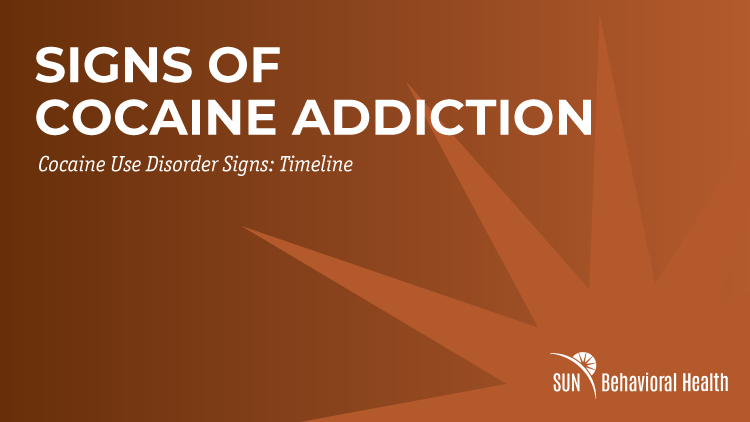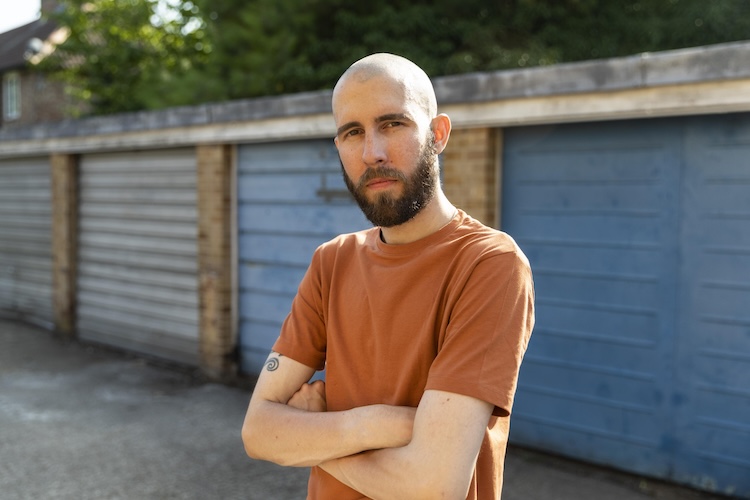Services

You’d been wondering if a loved one of yours is using cocaine. You had noticed your loved one had lost significant weight since the last time you spent together. Your loved one also seemed more irritable and anxious during the exchange than in the past. When a pleasant scent passed, your loved one remarked that smells weren't as strong as they were once upon a time.
By the end of your time with them, they excused themselves with a nosebleed, claiming they always had them and claimed they had someone else to be. A small bag of white powder fell out of their back pocket as they walked away. When you mentioned the bag, they quickly turned around, picked it up, and walked away. The exchange led you to wonder what the signs of cocaine addiction were and if your loved one was exhibiting those signs.
In 2020, 15,000 people in Delaware regularly used cocaine. While the use of cocaine does not always indicate a cocaine use disorder, the more often someone uses cocaine, the more of an increased risk someone has of developing a cocaine use disorder. Sometimes, people might use cocaine because of an additional disorder that exists alongside it. At SUN Behavioral Health Delaware, we can treat co-occurring disorders, such as anxiety and a cocaine use disorder, like with the loved one above.
The most significant way to know if someone has a cocaine use disorder is to be mindful of the signs of cocaine addiction. Today, we are going to discuss what those signs are.
There are several signs of a cocaine use disorder that someone might experience after several instances of using cocaine. For example, they might have small bags of white powder or other equipment used in the process of consuming cocaine. The substance is typically consumed either by snorting, smoking, or injecting. People with a cocaine use disorder may also have physical, behavioral, and social signs that indicate they have a cocaine use disorder beyond simply observing the action of taking cocaine.

Symptoms of cocaine use typically don’t last very long and depend on the method by which someone uses cocaine. For example, someone who smokes cocaine may feel symptoms of cocaine almost instantly, but the effects will only be present for 5-10 minutes. On the other side, snorting cocaine may result in a longer wait time before feeling the effects, but it will last 15-30 minutes.
Over time, with repeated use, people may also experience other symptoms that have resulted from long-term use. These symptoms can vary in the length of time they last and their severity. Most of the time, these signs and symptoms are chronic as long as cocaine use continues, while others may be more permanent.
Even people who have only taken cocaine once or a few times may experience symptoms due to cocaine use. Sometimes, these symptoms may be viewed as positive, while others are less positive and occasionally dangerous. The positive symptoms may encourage someone to continue to take cocaine, which may eventually lead to a cocaine use disorder. These side effects of cocaine use may include euphoria, being more talkative than usual, mental alertness, and being more energetic. People might also find that they do not feel the need to eat or sleep as much as they did when they weren’t using cocaine. Others may find they can do tasks more quickly than they could before. Often, these side effects are temporary and only last as long as cocaine lasts within their system.
However, there can also be more uncomfortable signs of cocaine use, especially following a cocaine binge, which is common among people who have a cocaine use disorder. Not everyone with a cocaine use disorder exhibits all of these symptoms. These might include dilated pupils, higher body temperature, and higher blood pressure. They might feel like they are more restless, anxious, or paranoid, while others may become more irritable, leading to potential violence. They may also experience tremors or twitches, especially if they have been without cocaine for some time.
Participating in cocaine binges due to increasing tolerance to cocaine can lead to an accidental overdose. A cocaine overdose may include symptoms such as a coma, headache, abdominal pain, and nausea. They may also include heart attacks or seizures, which can lead to death. If someone is experiencing a cocaine overdose, seek medical attention for them as soon as possible.
As time goes on and someone develops a cocaine use disorder, they may experience other signs. For example, they may become more focused on cocaine than they are on different topics in their life, such as maintaining relationships or food. They may also find they need more or more frequent doses of cocaine to receive the same pleasure that cocaine gave them in earlier stages of their cocaine use disorder. These signs combined may create worsening anxiety or increase the chance that someone experiences an overdose.
People who are more advanced in their cocaine use disorder are more likely to experience symptoms of withdrawal when they have been without cocaine for some time. Some signs of cocaine withdrawal include:
If someone repeatedly uses the same method of taking cocaine, they may experience method-specific signs that could indicate there are concerns with their cocaine use. For example, someone who snorts cocaine may experience a loss of their sense of smell or realize they have trouble swallowing. Meanwhile, smoking cocaine can result in damage to your lungs, while injecting cocaine may result in an increased risk of getting diseases such as hepatitis C. People who inject cocaine may also have puncture marks on their extremities, known as track marks, from the needles.
People who use cocaine over a long period may experience significant weight loss and malnourishment due to decreased appetite. People may also experience chest pain and other cardiovascular problems, which can lead to an increased risk of stroke. Cognitively, people with cocaine use disorders might have an impairment when it comes to their attention, memory, and decision-making skills.
When someone is using cocaine, they experience several symptoms that impact them physically, behaviorally, and socially. Not everyone with a cocaine use disorder experiences all of these symptoms, but they may experience some of them as a part of the disorder.
Physically, people with a cocaine use disorder may experience a lower body weight due to cocaine decreasing their appetite. They may also experience regular nosebleeds or runny noses. There can also be physical objects that indicate someone might be using cocaine. These might include:
There is also a wide range of behavioral signs you might notice if your loved one is using cocaine. For example, they may be more prone to mood swings, talkativeness, or excitability. Sometimes, they may seem more confident than they used to be. However, on the other side, they may isolate themselves more, not eat or sleep, or lose interest in activities that bring them joy. People with a cocaine use disorder may also find themselves in financial concerns as they have spent their money keeping up with the demand for cocaine they might feel they have to satisfy.
If a loved one is addicted to cocaine, you might notice that their social life has changed beyond just isolation. For example, they might have new friends or places they like to visit. Sometimes, people will also develop new activities to replace those they used to do. Confronting a loved one with a cocaine addiction may result in them denying there are any concerns surrounding their coke use, or they might deny they are using cocaine, period.

It can be challenging to decide to seek treatment for cocaine addiction. You may feel caught in a never-ending loop of wanting to leave cocaine behind and finding your way back when the urges become unbearable. You might even feel like you need cocaine to function, even if it also results in adverse side effects alongside the positive ones. Or perhaps you feel like you have to try to solve your concerns alone. However, this is where cocaine addiction treatment can come in. You don’t have to be alone when it comes to recovering from a cocaine use disorder. By seeking rehab and treatment, a team of professionals and peers will surround and walk with you through every step of your recovery journey.
SUN Behavioral Health Delaware solves unmet needs in Georgetown, DE. To accomplish this, we offer a no-cost care assessment that allows you to meet with a representative to determine your best care plan before starting treatment with us. If you have any questions or are ready to receive treatment for a cocaine use disorder, please give us a call at 302-604-5600 today.